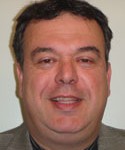It’s long been known that sleep plays a strong role in memory consolidation, but now, research is showing that age-related changes to the sleeping brain disrupt the normal pathways to memory formation, leading to that “forgetfulness” we associate with growing older.
Sleep and senior memory impairment
One of the exciting recent discoveries scientists have made in the area of sleep and memory research is that there is a link between poor sleep and memory loss in the aging brain. Neuroscientists at the University of California, Berkeley, reported their findings in a recent study that compared memory retention in groups of younger adults and older adults. Conducted in 2012 and released in Nature Neuroscience, the study found that in elderly people, age-related deterioration of the prefrontal cortex region of the brain was associated with a failure to achieve the kind of deep, slow-wave sleep that helps the brain consolidate memories and information.
Though it may seem there is nothing that we can do about the inevitable changes that happen in our brains as we age, there is a hopeful angle to the outcome of this study. The researchers’ findings may help future studies pinpoint new treatment angles for age-related memory loss. In fact, scientists are already designing studies to determine whether enhancing sleep in older adults can improve their overnight memory retention.
Can lack of sleep add to dementia risk?
There is another, more serious reason to tackle the problem of poor sleep in seniors: the risk of developing cognitive impairment or dementia later in life. Not only do people get less deep sleep as they get older, according to the National Institutes of Health, they are more likely to experience disruptions to their sleep schedule, suffer from insomnia or sleep apnea, or develop movement disorders like restless legs syndrome that keep them from getting a good night’s sleep. Scientists are now finding that some of these sleep disruptions are associated with impaired cognition and, in some cases, the later onset of dementia.
Dr. Kristine Yaffe, a psychiatrist at the University of California, San Francisco, has co-authored numerous studies looking at the relationship between sleep and cognition in older adults. One of those studies, published in 2011, found that older women with sleep-disordered breathing—seen in conditions such as sleep apnea—had an increased risk of developing cognitive impairment five years later. In another 2011 study, older men who experienced incidents of waking up at night after initially going to sleep showed poorer cognition than those with normal sleep patterns. In many of these cases, treating the causes of sleep problems like apnea may be able to reduce the risk of dementia later on.
In the end, however, it’s important to remember that there is not a simple cause-and-effect relationship between sleep and dementia risk, or sleep and memory loss. The interactions between sleep, brain changes, and cognitive impairment are complex, and just as there are many factors that cause changes in sleep as our loved ones get older, there are numerous causes for age-related mental decline. Getting a good night’s sleep is just one piece of the puzzle. If you do have trouble at night, consult your physician about the issue. Maybe a visit to a sleep lab and/or ruling out sleep apnea is needed.
Micha Shalev MHA CDP CDCM CADDCT is the owner of Dodge Park Rest Home and The Adult Day Club at Dodge Park, 101 Randolph Road, Worcester, as well as the new state of the art Oasis at Dodge Park. He is a graduate of the National Council of Certified Dementia Practitioners program, and well-known speaker covering Alzheimer’s and Dementia training topics. The programs at Dodge Park Rest Home specialize in providing care for individuals with dementia and Alzheimer’s disease. The facility holds a FREE monthly support group meeting on the second Tuesday of each month for spouses and children of individuals with dementia and/or Alzheimer’s disease.
Shalev can be reached at 508-853-8180 or by e-mail at m.shalev@dodgepark.com. For more information, visit www.dodgepark.com. Archives of articles from previous issues can be read at www.fiftyplusadvocate.com.












